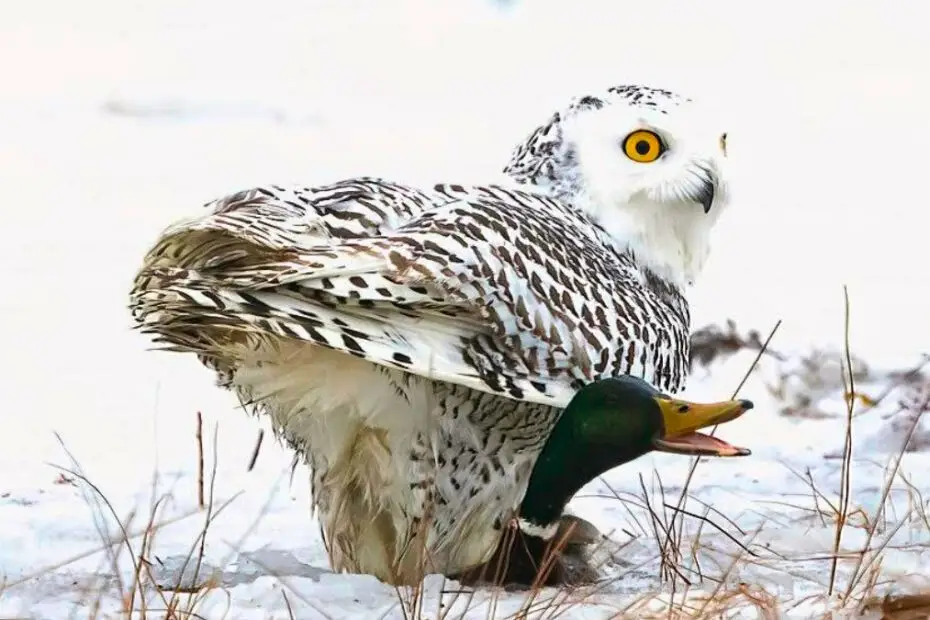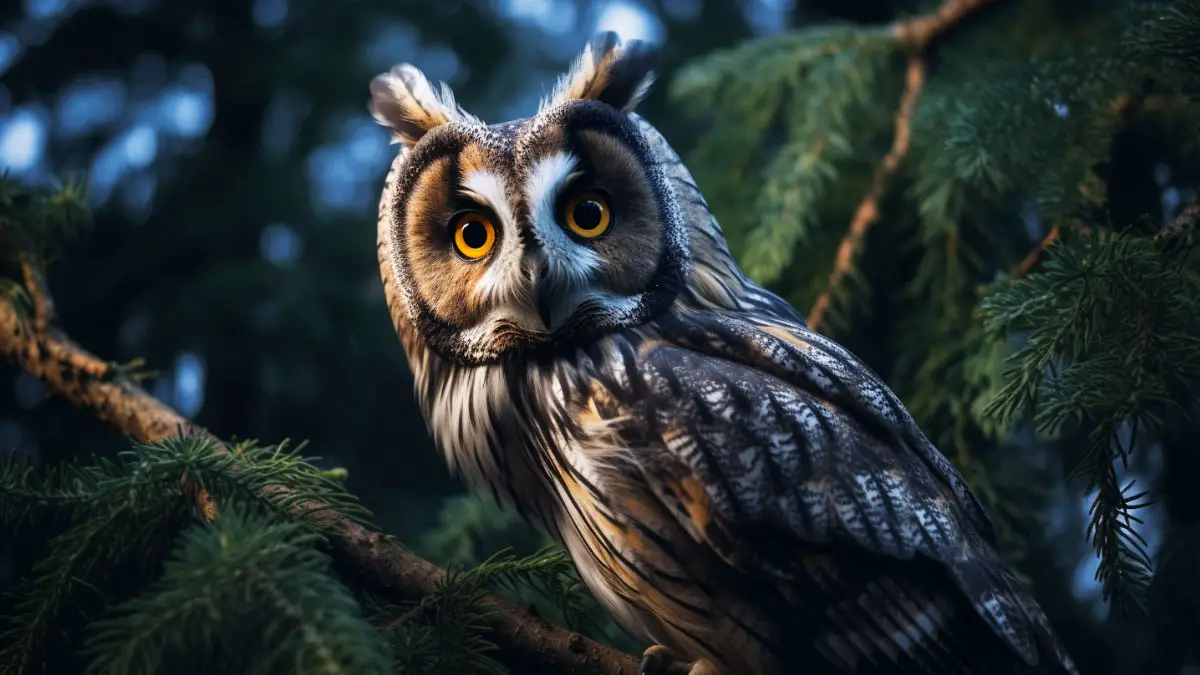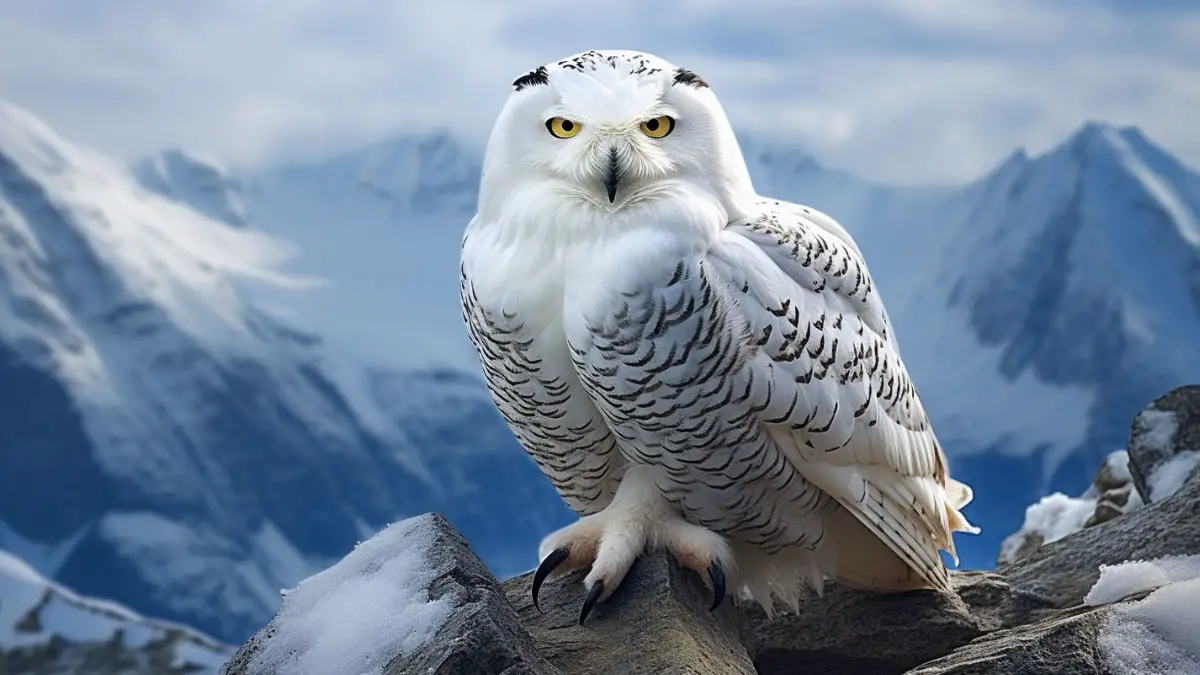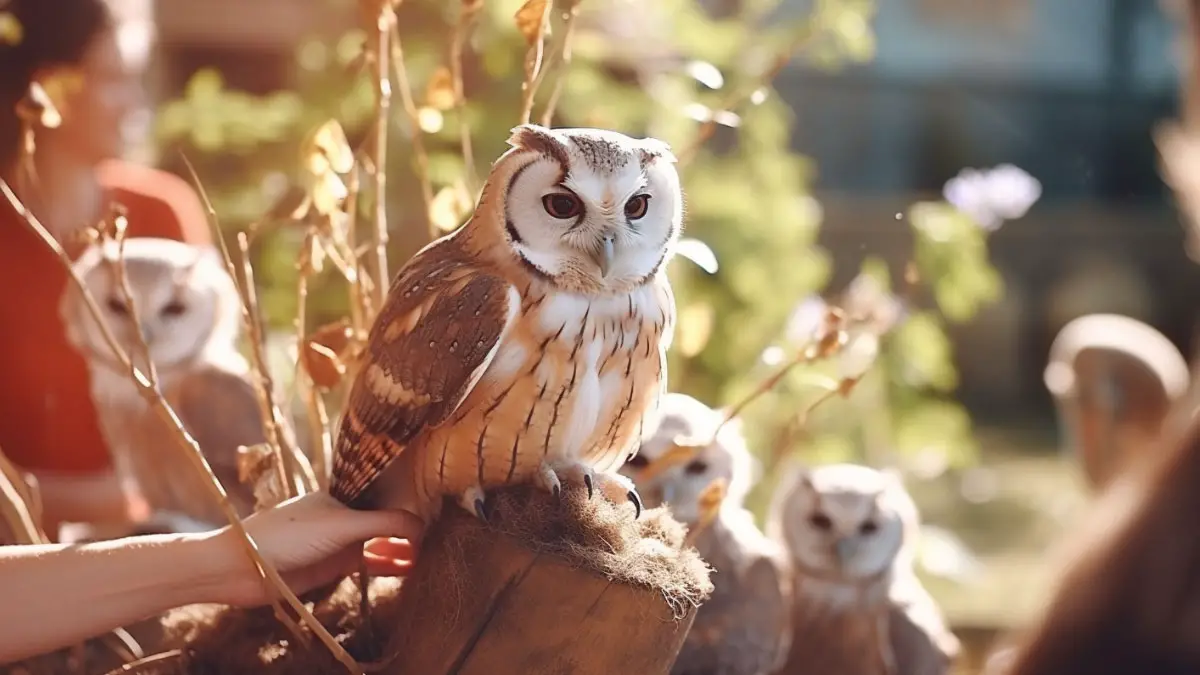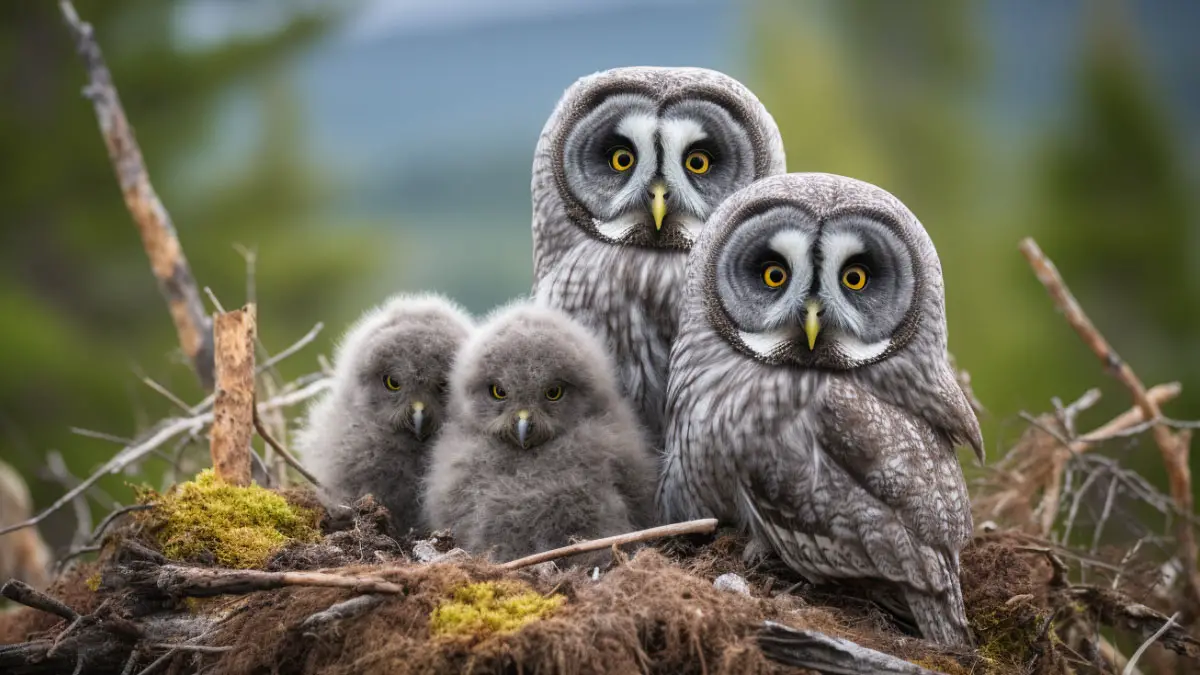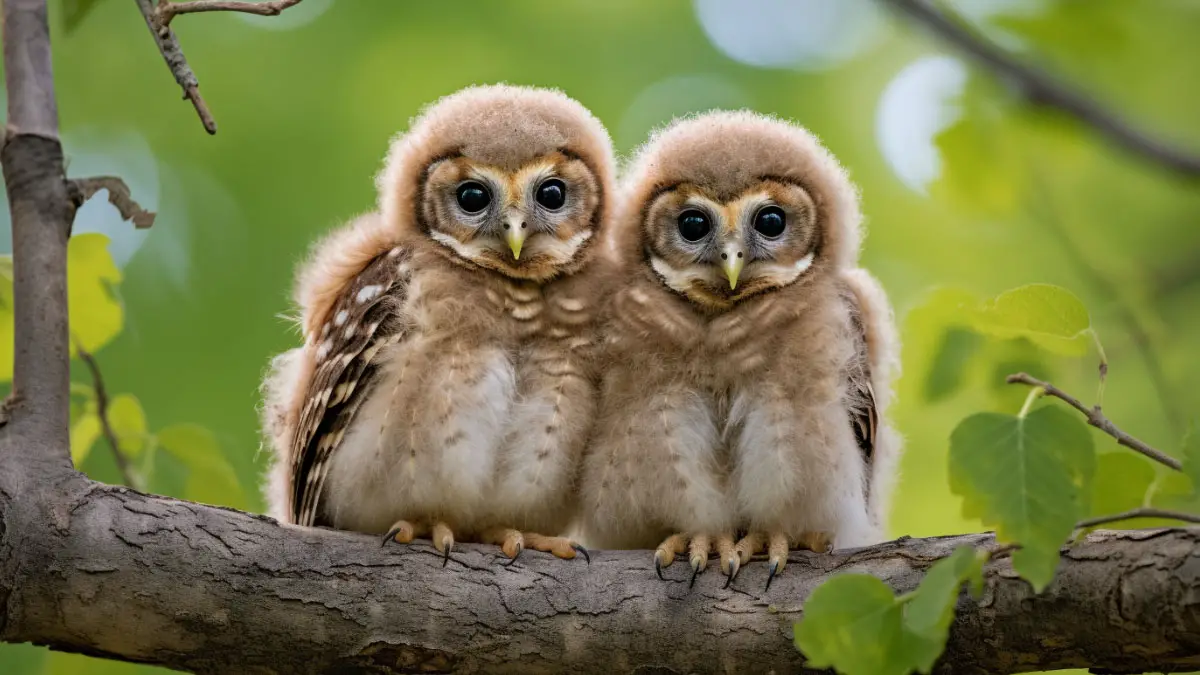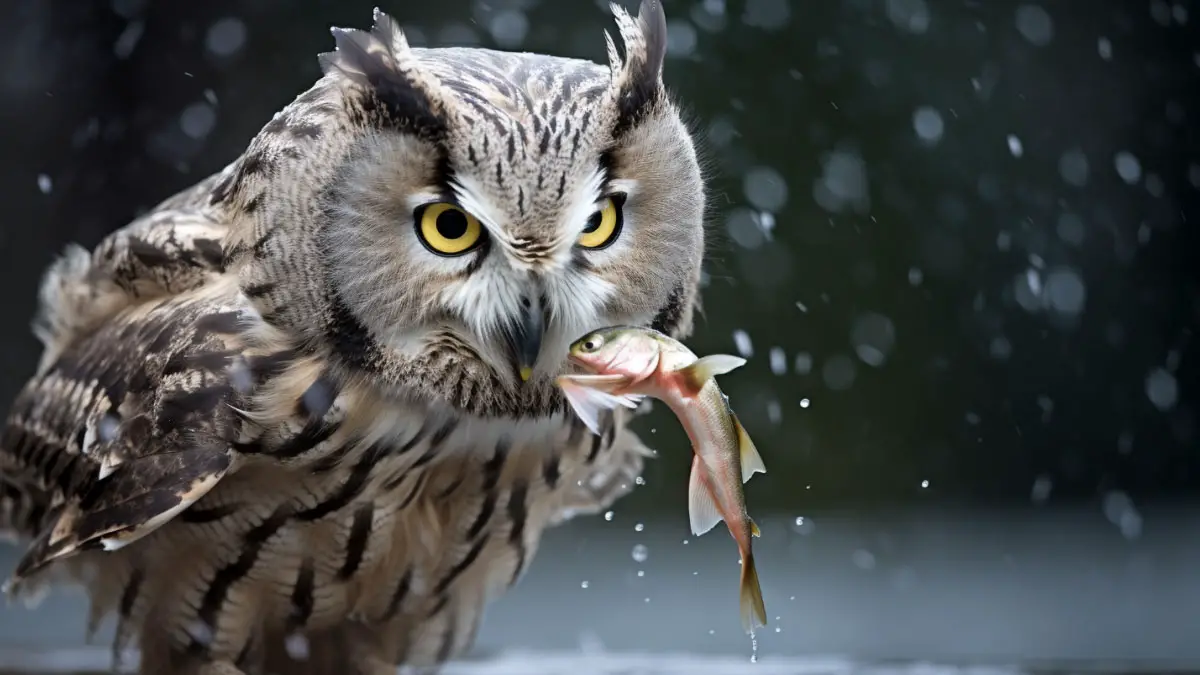When it comes to avian diets, owls stand out as unique creatures. But have you ever wondered about their eating habits? Owls are carnivorous predators, meaning they primarily feed on other animals. Their diet can include even other birds like doves, sparrows, and pigeons.
But do owls eat ducks? Yes, they do, but not all owls, and not all the time. Owls are opportunistic hunters and will consume ducks when it aligns with their dietary needs. Some species, like the Barn Owl and Great Horned Owl, occasionally hunt smaller duck species and ducklings.
Ducks are a good source of proteins and fats for owls – especially the owl chicks.; only some do occasionally. Find out more about the dietary needs of owls and why they go on duck hunting!
Do Owls Eat Ducks? A Brief Overview of the Dietary Preferences of Owls
Owls are found on every continent except Antarctica, with over 200 species worldwide. While they come in various shapes and sizes, from the tiny Elf Owl to the massive Eurasian eagle owl, their dietary preferences often share common elements.
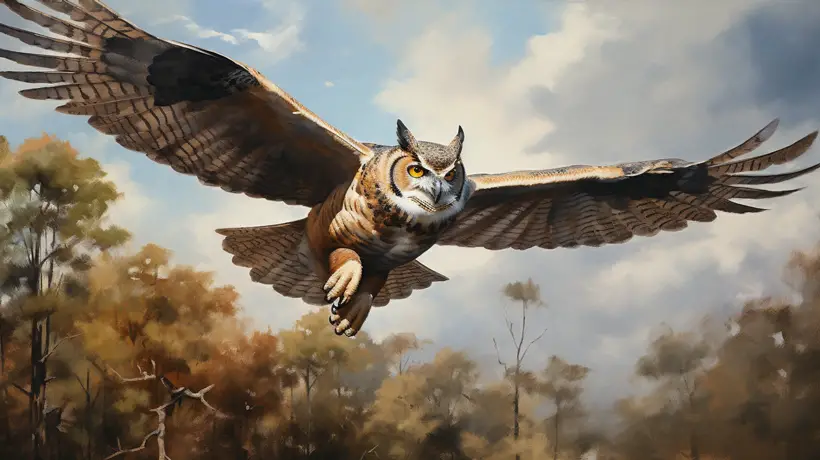
Here’s a quick overview of different species of owls and their food habits –
| Owl Species | Dietary Preferences |
|---|---|
| Barn Owl | Small mammals, birds, and occasionally ducks and frogs |
| Great Horned Owl | Wide variety, including mammals, birds, and ducks |
| Burrowing Owl | Insects, small mammals, and rarely ducks |
| Snowy Owl | Primarily lemmings, small rodents, and birds |
| Eastern Screech Owl | Insects, small rodents, and birds |
| Northern Saw-whet Owl | Small mammals, insects, and some birds |
| Eagle Owl | Hares, little foxes, and birds up to the size of ducks and gamebirds |
| Asian Fish Owls | Small fish, mammals, and amphibians |
Owls don’t exclusively hunt ducks. Their choice of prey depends on various factors, including the availability of other food sources, the location, and the specific duck species present.
Smaller duck species are more vulnerable to owl predation, especially during the night when they are roosting on the water. Owls such as the Barn Owl and the Great Horned Owl are known to prey on ducks like the Mallard or the Wood Duck.
Another prime target for owls is ducklings. These fluffy, inexperienced swimmers are easy pickings for hungry owls.
Also, ducks like the Northern Pintail and the Gadwall are common victims of owl predation during their early stages of life.
Nutritional Needs of Owls
To understand why owls occasionally include ducks in their diet, we must consider their nutritional requirements.
Their diet consists mainly of mammals, birds, and occasionally, insects and reptiles. However, what they eat depends largely on their species, size, and habitat. Despite their diverse diets, owls tend to exhibit remarkable hunting skills.
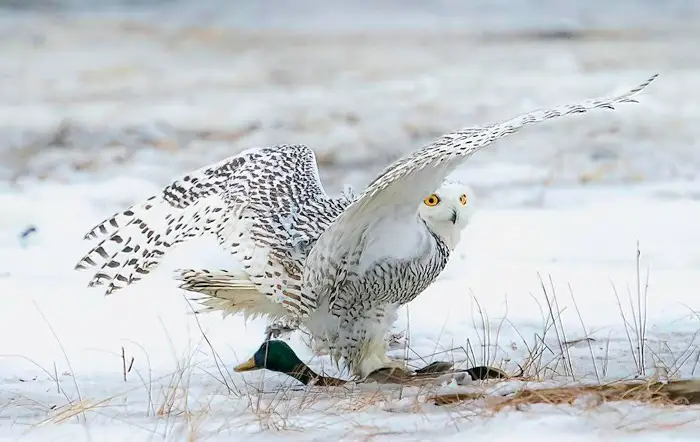
To meet their nutritional needs, owls consume a variety of food items:
Protein
Essential for muscle development and overall health. Owls consume proteins through small mammals like rodents, shrews, rabbits, and insects.
They can also feed on birds like sparrows, pigeons, and ducks. For fish-eating owls, fish is a great source of protein.
Fats
Provide energy and insulation, especially in cold climates. Birds and mammals provide fats in an owl’s diet. For example, the fat content is high in birds like pigeons and ducks.
Calcium
Vital for bone strength and eggshell formation in breeding owls. The bones and shells of prey animals, especially rodents and birds, provide calcium.
Vitamins
Vitamins A, D, and E are essential for various metabolic functions. Owls acquire vitamins from their prey, especially the livers and organs, which are rich in vitamins A and D. Additionally, insects provide vitamins.
Minerals
Iron, zinc, and selenium help in maintaining their overall health. Prey animals often contain essential minerals, including iron (found in blood), zinc, and selenium.
Water
Critical for digestion and overall well-being. Owls obtain water from their prey and may drink water when available.
A balanced diet of these food items helps owls maintain their health and meet their nutritional requirements.
Different Species of Owls that Eat Ducks
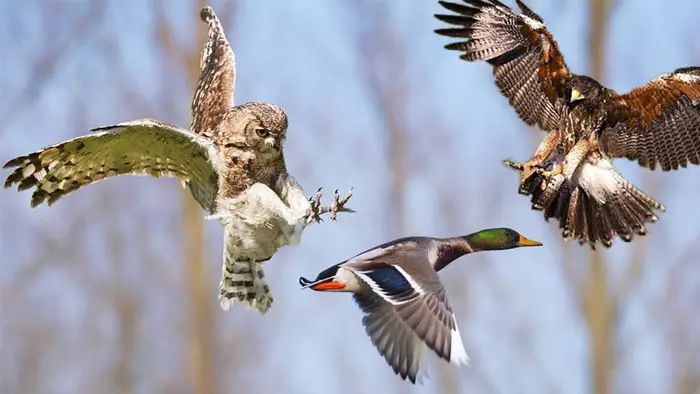
Although owls don’t regularly consume ducks, some species are known for this exceptional diet. Here are a few owl species known for consuming ducks:
Great Horned Owl (Bubo virginianus)
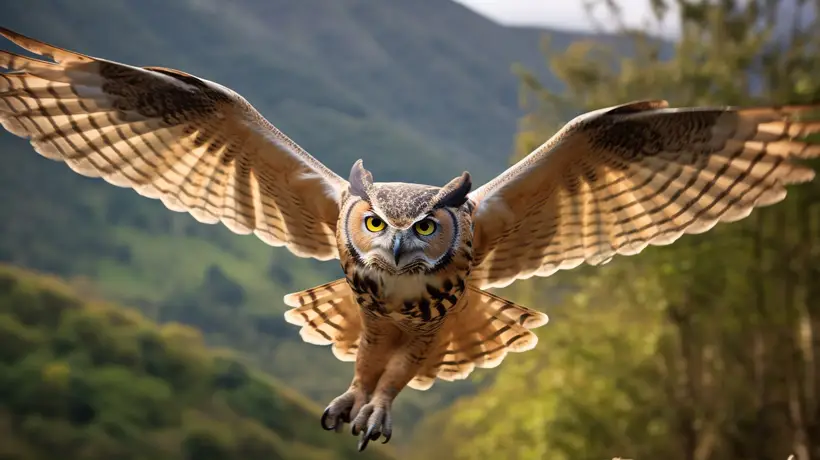
Great Horned Owls are skilled hunters of waterfowl. These formidable predators are known for their varied diet, which includes a wide range of animals, including ducks.
They’re capable of hunting ducks on land and in water due to their powerful talons and strong beaks. These owls often prey on medium-sized ducks like Mallards and Wood Ducks.
Barn Owl (Tyto alba)
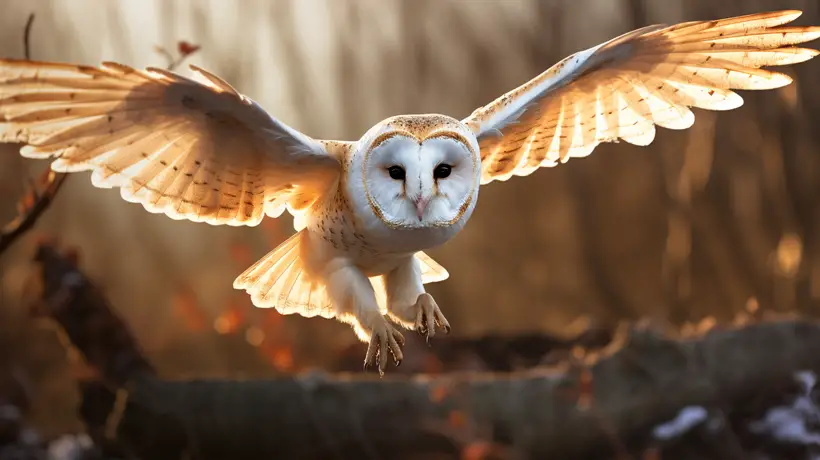
Barn Owls are known for their silent flight and exceptional hunting skills.
While their primary diet consists of small mammals like rodents, they will occasionally capture birds, including ducks, if the opportunity arises. Smaller duck species are more vulnerable to Barn Owl predation.
Eastern Screech Owl (Megascops asio)
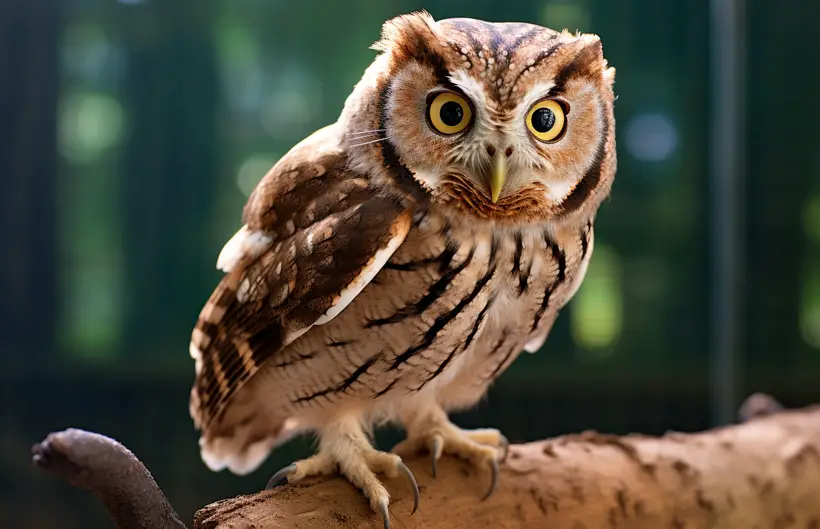
Eastern Screech Owls mainly hunt small mammals and insects, but they are opportunistic predators.
They may occasionally take small birds, including ducks, when they are within striking range. Ducklings and smaller duck species are more likely targets.
Long-eared Owl (Asio otus)
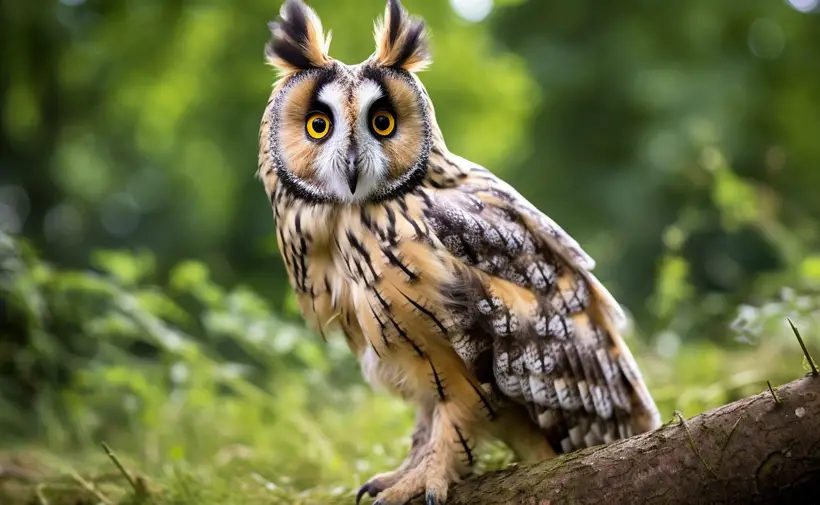
Long-eared Owls primarily feed on small mammals, especially rodents like voles and shrews.
While they do not commonly target ducks, they may opportunistically capture ducks, particularly during the breeding season when ducklings are present.
Short-eared Owl (Asio flammeus)
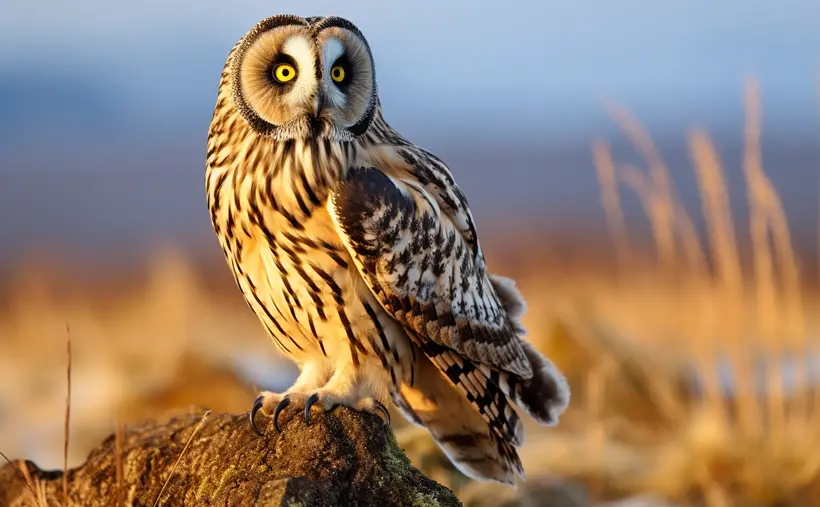
Short-eared Owls prefer open grasslands and wetlands, where they hunt small mammals and birds.
Ducks can be part of their diet, especially in wetland habitats where ducks are abundant and easily accessible.
These owls have diverse diets and do not exclusively rely on ducks for sustenance. Besides, all individuals of these species may not consume ducks, as their prey preferences can differ within the same species.
Why Do Owls Eat Ducks?
Now that you know owls occasionally hunt ducks for diet, you may ask why owls eat ducks? Owls eat ducks primarily because ducks are available prey. Ducks also align with their opportunistic hunting behavior and nutritional requirements.
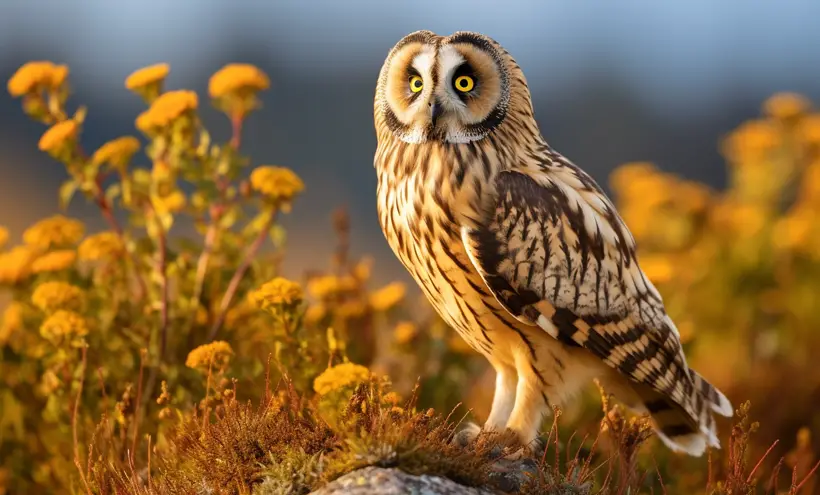
Here are the reasons owls include ducks in their diet –
Opportunistic Hunting
Owls are skilled predators, but they do not limit themselves to specific prey items. Instead, they take advantage of the opportunities presented to them.
If a duck happens to cross their path while they are hunting in their territory, the owl may seize the chance to capture it.
This opportunistic approach allows owls to diversify their diet according to what is available.
Habitat and Roosting Sites
Ducks often share wetland habitats with owls. Wetlands provide abundant sources of food for both owls and ducks, making it more likely for owls to encounter ducks while foraging.
Also, ducks often roost on water at night, making them easier targets for owls. This applies especially to species like the Great Horned Owl since they have aquatic hunting abilities.
Seasonal Variation
The availability of prey can vary seasonally, and owls adjust their diet accordingly. For example, when ducklings are hatching and vulnerable during the breeding season, owls may incorporate more ducks into their diet.
This is because ducks are a readily available and nutritious food source.
Nutritional Benefits
Ducks can provide owls with essential nutrients and energy. They’re relatively larger prey items compared to many other birds and contain a good balance of proteins and fats.
This nutritional value can be especially beneficial for growing owl chicks and during periods when alternative prey is scarce.
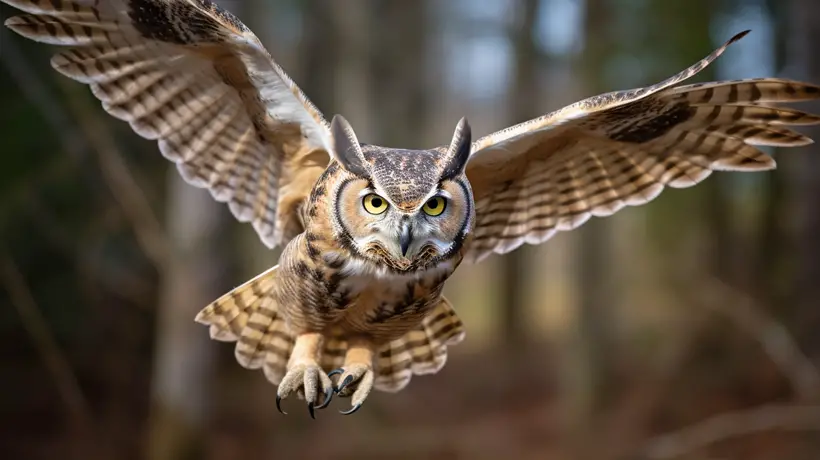
Regional Differences
The dietary preferences of owls can vary based on their geographic location. In regions with abundant duck populations, owls may include ducks in their diet more frequently.
In urban and suburban settings, ducks can become a more accessible food source for owls. Parks, golf courses, and backyard ponds often host duck populations, making them potential targets for urban-dwelling owls.
In contrast, owls may consume fewer ducks or none in areas with different primary prey options.
Predatory Efficiency
Thanks to their acute senses and silent flight, owls are highly efficient hunters. When they decide to target ducks, they often rely on their superior hunting skills to capture their prey quickly and silently.
FAQs
As owls are quite intriguing as birds, people often ask questions regarding their dietary habits. So, we’ve answered some of the most asked questions –
Urban owls may have easier access to ducks in city parks and ponds, but their dietary preferences can still vary. They often prefer pigeons and other urban birds over ducks.
Owls target smaller duck species and ducklings, as they are more vulnerable to predation.
Owls like the Great Horned Owl can capture ducks in water with their sharp talons. They approach stealthily and use their powerful grip to seize the prey.
The Bottom Line
So, to conclude, do owls eat ducks? Yes, they do. Owls have a diverse diet and smaller ducks or ducklings are a part of it. Their strong talons, powerful grip, and keen eyesight are appropriate for hunting ducks.
Understanding the dietary habits of owls, including their occasional consumption of ducks, is important. It highlights the interconnected ecosystems and emphasizes the need to protect the habitats of owls and ducks.
